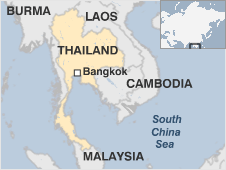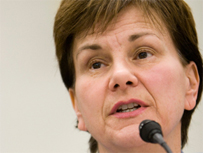Generic Medicines
Taj Pharma is the largest generic pharmaceutical company in India. We hold top positions in different established markets worldwide generics markets..

The drug company, Amphastar Pharmaceuticals Inc., paid more than $100,000 to Kroll, the New York-based private investigative firm, to uncover the information about Janet Woodcock, director of the FDA’s Center for Drug Evaluation and Research, who overees the agency’s new-drug approvals.
At stake for Amphastar, a generic drug maker, was whether the FDA would allow it to bring to market a version of a prescription drug for blood clots, and gain access to a market worth more than $3 billion.
Thailand is a country of mountains tropical rainforests and flat plains. Religion the monarchy and the military have helped to shape its society and politics.
 |
The 1980s brought economic boom and the agriculture-based economy changed as Thais flocked to work in industry and the services sector.
But the bubble burst in 1997 with the south-east Asian financial crisis. Stock and property prices plummeted dragging down the currency and leading to bankruptcies recession and unemployment.
The government of the time - under Chuan Leekpai - worked with the IMF to reform the battered economy.
But the 1997 experience caused many Thais to regard international finance with deep distrust. Mr Chuan lost the 2001 elections to an opponent who promised to help people with their daily difficulties.

Janet Woodcock, director of the FDA's Center for Drug Evaluation and Research, is one of two officials Amphastar Pharmaceuticals paid to have investigated. |
Though Thailand's recent governments have been civilian and democratically-elected the country has seen turbulent times. The military governed on and off between 1947 and 1992 - a period characterised by coups coup attempts and popular protests.
In September 2006 the military once again stepped into politics carrying out a bloodless coup against Prime Minister Thaksin Shinawatra while he was at the UN General Assembly.
An interim prime minister was appointed a month later.
By the end of 2007 the military junta had drafted a new constitution and held general elections marking the beginning of the transition back to civilian rule.
Thailand has a minority Muslim population concentrated in its southern provinces.
A decades-old separatist struggle in the region - which abated in the 1980s - flared again in 2004. The violence has claimed more than 3 000 lives.
Thailand's capital Bangkok expanded rapidly with the influx of workers during the boom years. It is one of Asia's most vibrant and heavily-congested cities.
The large-scale sex industry which flourishes there contributed to the incidence of HIV infection - a major concern for the Thai government.
Thailand has taken the lead in the region in distributing cheaper generic drugs for Aids sufferers and awareness campaigns are credited with reducing the number of new infections.
Thai cuisine is known throughout the world for its use of hot sweet and sour spices. Sculptures of the Buddha in sitting or reclining positions are also characteristic of Thailand as is classical dance.
Head of state:
King Bhumibol Adulyadej
Thailand is a constitutional monarchy.
Its king Bhumibol Adulyadej assumed the throne in June 1946 and is the world's longest-reigning monarch.
The royal family is revered by many Thais.
Prime minister: Abhisit Vejjajiva
Abhisit Vejjajiva defeated an ally of exiled former Prime Minister Thaksin Shinawatra in a parliamentary vote to become Thailand's fifth head of government in a little over two years.

Taking responsibility for your health
|
Mr Abhisit's election marked the first time his Democrat Party - Thailand's oldest - had formed a government in eight years.
The vote was the result of weeks of manoeuvring to persuade several minor parties which had supported the previous government to switch sides.
Mr Abhisit's predecessor Somchai Wongsawat an ally of Mr Thaksin was forced from office in December 2008 by a Constitutional Court ruling that disbanded his People Power Party and barred its leaders from politics for five years.
The ruling came after months of protests by opponents of Mr Thaksin and his allies that closed the country's two main airports.
The protesters said the previous two years' governments were proxies for the discredited Thaksin Shinawatra who was ousted in a military coup in 2006 and has fled Thailand to escape corruption charges.
Mr Abhisit 44 comes from a wealthy family of Thai-Chinese origins and was educated at England's top public school Eton and Oxford University.
He joined the Democrats in 1992 at the age of 27 becoming its leader in 2005.
His supporters are mainly from Thailand's educated middle class unlike former PM Thaksin Shinawatra and his allies who draw their support from working class and rural Thais.
After his election he said one of his main aims was to re-establish "national harmony" after the deeply polarising politics of recent years.
But the deep divisions within Thai society were once more highlighted when anti-government protesters stormed the venue of an ASEAN summit in the resort of Pattaya in April 2009 forcing the cancellation of the summit.
The government and military control nearly all the national terrestrial television networks and operate many of Thailand's radio networks.
Multichannel TV via cable and satellite is widely available. The radio market particularly in Bangkok is fiercely competitive. There are more than 60 stations in and around the capital.
The media are free to criticise government policies and cover instances of corruption and human rights abuses but journalists tend to exercise self-censorship regarding the military the monarchy the judiciary and other sensitive issues.
The print media are largely privately-run with a handful of Thai-language dailies accounting for most newspaper sales.
A series of media reforms are under way aimed at reducing military interest and influence in the media and opening up more opportunities to the private sector.
There were 13.4 million internet users by March 2008 (ITU). According to The Nation daily surfers face "some of the world's toughest measures on internet filtering". Pornographic sites anti-monarchy sites and anti-government sites are targeted the paper said.
The press
Television
Radio
News agency
Thai News Agency - run by MCOT English-language pages

AFRICA | ASIA-PACIFIC | AMERICAS | EUROPE | MIDDLEEAST | SOUTHASIA
![]()
![]()
![]()
Mauritania Mauritius Morocco Mozambique Namibia Niger Nigeria Republic-of-congo Rwanda Sao-tome-and-principe Senegal Seychelles Sierra-leone Somalia South-africa Sudan Swaziland Tanzania The-gambia Togo Tunisia Uganda Australia Brunei Burma Cambodia China East-timor Fiji Indonesia Japan Kazakhstan Kiribati Kyrgyzstan Laos Malaysia Marshall-islands Micronesia Mongolia Nauru New-zealand North-korea Palau Papua-new-guinea Samoa Singapore Solomon-islands South-korea Taiwan Tajikistan Thailand The-philippines Tonga Turkmenistan Tuvalu Uzbekistan Vanuatu Vietnam Antigua-and-barbuda Belize Bolivia Brazil Canada Chile Colombia Costa-rica Cuba Dominica Dominican-republic Ecuador El-salvador Grenada Guatemala Guyana Haiti Honduras Jamaica Mexico Nicaragua St-kitts-and-nevis St-lucia Suriname Trinidad-and-tobago Uruguay Venezuela Albania Andorra Armenia Austria Azerbaijan Belarus Belgium Bosnia-hercegovina Bulgaria Croatia Cyprus Czech-republic Denmark Estonia Finland France Georgia Germany Greece Hungary Iceland Ireland Italy Latvia Liechtenstein Lithuania Luxembourg Macedonia Malta Moldova Monaco Montenegro Norway Poland Portugal Russia San-marino Serbia Slovakia Slovenia Spain Sweden Algeria Egypt Iran Iraq Israel-and-palestinian-territories Jordan Kuwait Lebanon Libya Mauritania Oman Saudi-arabia Sudan Syria Tunisia United-arab-emirates Yemen Afghanistan Bangladesh Bhutan India Nepal Pakistan Sri-Lanka The-Maldive